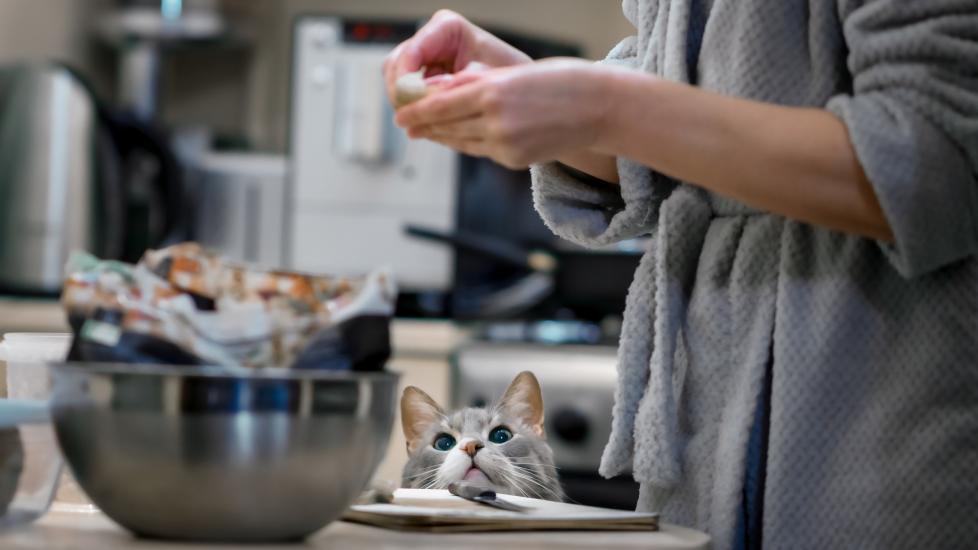Can Cats Eat Shrimp?
Adobe Stock/Marina Gordejeva
Cats and seafood just seem to go together. When we picture our feline friends, we often think of them feasting on tuna, salmon, and crab. But what about shrimp? Can cats eat shrimp?
Not all foods are safe for kitties, and it’s wise to ask if cats can have shrimp before sharing that platter with your furry buddy. Read on to find everything you need to know about shrimp for cats.
Is Shrimp Good for Cats?
Shrimp is nontoxic and, as long as it’s properly prepared, safe to offer your kitty in small amounts.
Shrimp is a low-calorie, high-protein treat that supplies your kitty with a healthy boost of vitamin B12, omega-3 and omega-6 fatty acids, and choline. And, along with being nutritious, it’s tasty.
However, shrimp should only be offered to your cat as a treat because it doesn’t provide all the nutrition a healthy feline needs. Keep the portions small (less than 10% of their daily caloric intake).
Can Cats Eat Shrimp Shells or Tails?
Just like humans shouldn’t eat shrimp shells or tails, these are off-limits for your cat, too. These parts of the shrimp contain minimal nutritional benefits, and they can be a choking hazard or cause an intestinal blockage.
Shrimp for cats should always be well-cooked (not raw!), with the shells and tails carefully removed.
How Much Shrimp Can Cats Eat?
For most kitties, it’s safe to offer a small amount of shrimp once or twice a week as a special treat. A small cat can likely eat half of one shrimp per serving, while a large cat (like a 15-pound Maine Coon) can probably eat one full shrimp.
But before offering any shrimp to your cat:
-
Check with your veterinarian to make sure it’s OK that your kitty has this snack.
-
Offer your cat a small taste of shrimp, and then monitor them for any adverse signs such as vomiting, diarrhea, or abdominal discomfort.
-
If your cat doesn’t show any symptoms of gastrointestinal (GI) upset, you can continue feeding them shrimp. Do not offer your cat more shrimp if you notice any of the above symptoms.
How To Prepare Shrimp for Cats
Shrimp for cats should be carefully prepared before it’s placed in your cat’s food bowl. First, it must be thoroughly cooked. Raw shrimp can contain bacteria, which will be killed through cooking.
Let the shrimp cool until it’s comfortable to handle, and then remove the shell and tail. Cut the remaining shrimp into small pieces before offering it to your cat.
Do not use any seasonings or dressings when preparing shrimp for cats. These could contain toxic ingredients, such as garlic, and result in digestive upset.
Other Foods To Feed Your Cat
Cats are obligate carnivores, meaning they must eat meat to get the nutrition they need. There are many types of meat your cat can eat as an occasional snack (though, they should always get 90% of their daily calories from well-balanced cat food).
Try offering your cat:
Make sure the meat is always well-cooked and free from any seasonings. And remember: Always talk to your veterinarian before adding anything new to your cat’s diet.
